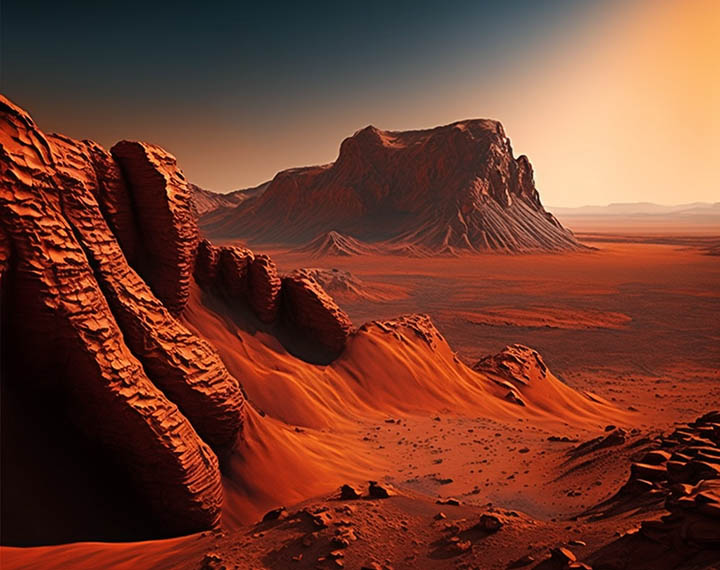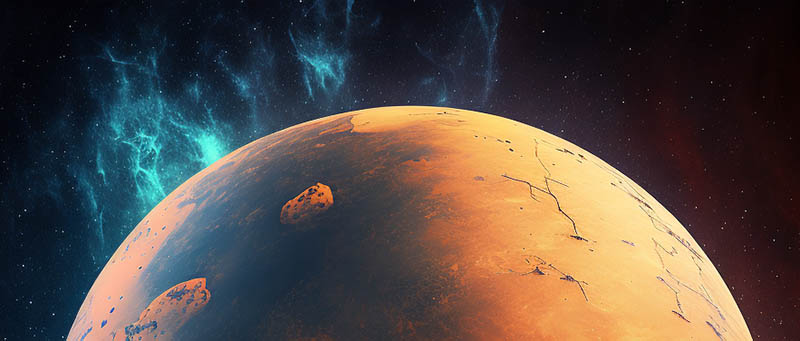Mars, the fourth planet from the Sun, is known for its barren, cold, and dusty terrain. The average temperature on Mars is about -63 °C (-81,4 °F), which is significantly colder than on Earth. But what causes this extreme coldness on Mars? Let’s explore some major factors that contribute to Mars’ frigid temperatures.
Mars is Far from the Sun
One of the primary reasons why Mars is so cold is its distance from the Sun. Mars is located an average of 140 million miles (225 million kilometers) away from the Sun, which is roughly 50% farther than Earth’s average distance. This distance means that Mars receives significantly less sunlight and solar energy than Earth, leading to colder temperatures.
The Thin Atmosphere: Not Enough Heat Retention
Another factor that contributes to Mars’ coldness is its thin atmosphere. Mars has a much thinner atmosphere than Earth, which means that it cannot trap and retain heat as efficiently. In fact, Mars’ atmosphere is about 100 times thinner than Earth’s, and it is mostly composed of carbon dioxide. The lack of a thick atmosphere means that Mars cannot effectively trap heat, leading to rapid cooling of its surface.
The Lack of Oceans and Water Vapor
Water is a great heat absorber and can help regulate temperatures. Unfortunately, Mars has no oceans and very little water vapor in its atmosphere. As a result, it cannot retain heat as effectively as Earth, and temperatures on Mars drop rapidly during the night. The lack of water also makes it difficult for any life forms to survive on Mars.

Harsh Seasons
Mars’ axial tilt is also a factor that contributes to its coldness. Like Earth, Mars also experiences seasons, but they are much more extreme. Mars has a tilt of about 25 degrees, which is similar to Earth’s 23.5 degrees. However, Mars has a much longer year (687 Earth days), so its seasons are much longer and more severe. During the Martian winter, temperatures can drop as low as -143 °C (-225 °F).
In conclusion, Mars’ distance from the Sun, thin atmosphere, lack of water, and axial tilt contribute to its extreme coldness. While there have been efforts to colonize and terraform Mars, the planet’s harsh environment presents significant challenges for sustaining life. Understanding the factors that contribute to Mars’ coldness can help us better prepare for any future exploration or colonization efforts.
Does Mars Ever Get Hot?
Although Mars is generally cold, it can experience some extreme temperature swings. The hottest temperature ever recorded on Mars was 70 degrees Celsius (158 degrees Fahrenheit) at the equator in the middle of the day, while the coldest temperature ever recorded was -143 degrees Celsius (-225 degrees Fahrenheit) in the winter at the poles.


